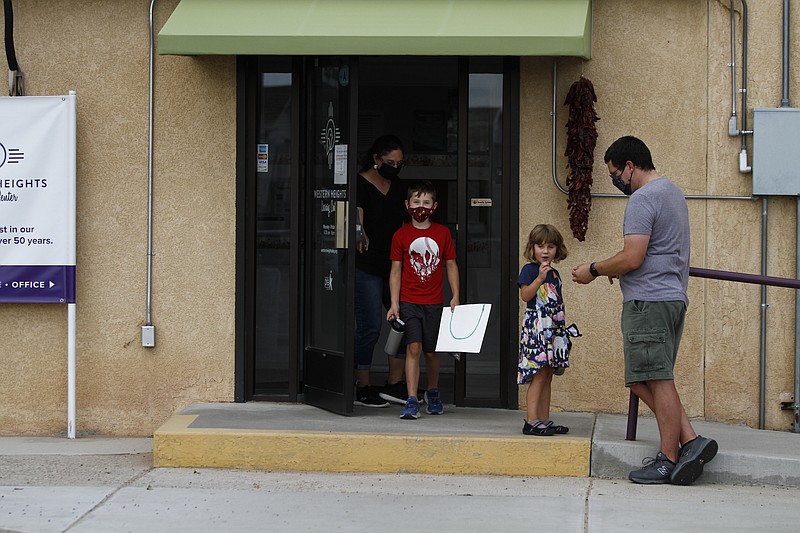SANTA FE, N.M. -- A federal judge on Wednesday weighed whether pandemic-related occupancy limits on private schools in New Mexico violate constitutional rights to equal protection and freedom of assembly, in a case closely watched by the Trump administration.
The lawsuit by the father of a 7th-grader at a prep school in Albuquerque says the state is violating the U.S. Constitution by setting more stringent restrictions at private schools regarding the return to classrooms, as the coronavirus rages unchecked by vaccines.
The school in question, Albuquerque Academy, is providing online instruction only -- though some private schools have resumed in-person instruction.
A state public health order limits in-person instruction to 25% of maximum room capacity, while the public schools can submit reopening proposals to the state Public Education Department with guidelines for a 50% occupancy limit or allowances for 6 feet of social distancing.
[CORONAVIRUS: Click here for our complete coverage » arkansasonline.com/coronavirus]
Plaintiff's attorney Deena Buchanan described the plaintiff's daughter as a shy middle-school student who is cut off from vital social and academic interaction -- while far more people legally assemble in preschools, houses of worship and retail stores.
"Hundreds of people can be in a Home Depot and thousands can be in an Albuquerque church," Buchanan said. "But less than a handful are allowed to be in a classroom in Albuquerque Academy only because it's a private school."
The administration of Democratic Gov. Michelle Lujan Grisham says private schools already occupy a privileged position with minimal state oversight and resources that allowed some to reboot in-person instruction before comparable public schools.
Private schools in New Mexico enroll about 22,000 students -- or nearly 7% of school-aged children.
statement of interest
The outcome of the federal lawsuit could reverberate beyond New Mexico, as the Justice Department filed a statement of interest in support of plaintiff and parent Douglas Peterson, signed by its civil rights division and a local U.S. attorney.
President Donald Trump and his education secretary have suggested diverting federal funding away from public schools that decline to reopen and toward parents who wish to send their children to private schools or for home schooling, learning pods or other options that have arisen during the coronavirus pandemic.
Judge William Johnson focused his questions Wednesday on whether public middle and high school students could soon return to classrooms in numbers that surpass current legal thresholds for private schools.
He promised to rule quickly on a request for a preliminary injunction to ease restrictions, without setting a specific deadline.
Matthew Garcia, an attorney for the governor and state Health Department, said it was Albuquerque Academy -- and not state health officials -- that made the decision to go without in-person learning. He noted that schools can stay within the building occupancy limit by teaching out of athletic facilities, cafeterias and other non-classroom buildings.
Tennessee qualms
Separately, Tennessee education officials on Wednesday predicted a big hit to student learning due to interruptions from the pandemic.
The state Department of Education projected a 50% decrease in reading proficiency rates and a 65% drop in math among third graders.
The estimates come as Republican Gov. Bill Lee and his administration continue to urge districts to hold in-person classes during the ongoing pandemic.
"What we're looking at is unprecedented," Education Commissioner Penny Schwinn said at a news conference Wednesday. "And I think that the drops that we are seeing in terms of learning loss as a result of school building closures is going to take more than a school year. So I want us to have realistic expectations for the hard work that's happening with our superintendents, teachers, principals and more."
Schwinn said the projections are based off a study done in June by her department and partnering organizations, district-level data and beginning-of-the-year assessments completed by more than 30,000 students to date.
Schwinn said the third grade literacy rate is usually 33%, but it's projected to now be 12% to 14%. Fourth grade math proficiency usually is 33% to 35%, and it's now estimated to be 17%.


